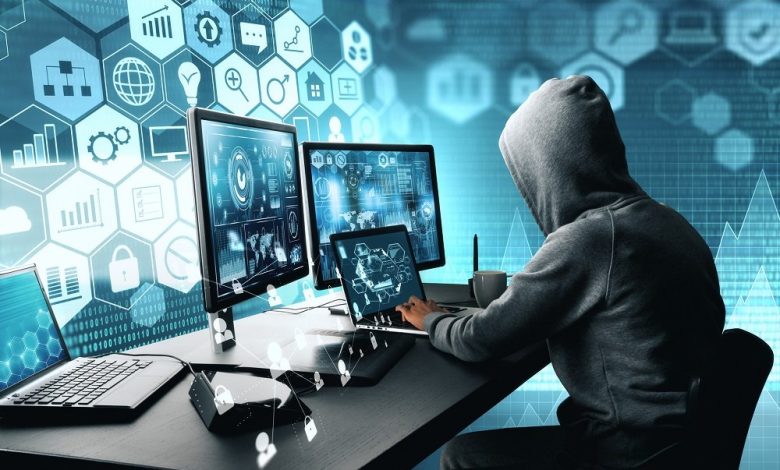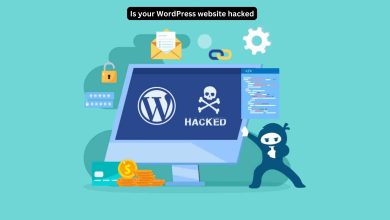Can Facebook Video Calls be Hacked?

In today’s interconnected world, video calls have become an integral part of our personal and professional lives. Platforms like Facebook offer users the convenience of connecting with friends, family, and colleagues through their video call feature. While these services provide a convenient and accessible means of communication, concerns about privacy and security inevitably arise. One such concern revolves around the question: Can Facebook video calls be hacked?
In this article, we will delve into the security architecture of Facebook’s video call feature, discussing the measures implemented by the platform to safeguard user data. We will also explore possible avenues through which facebook hacker could exploit vulnerabilities, potentially compromising the privacy and confidentiality of video calls. By understanding these risks, users can take appropriate precautions to mitigate potential threats.
Understanding the Basics of Facebook Video Calls
Facebook Video Calls allow users to make real-time video and audio calls to their friends, family, or colleagues through the Facebook platform. Here’s a brief overview of how it works:
- Initiation: To start a video call, users can either use the Facebook Messenger app on their mobile devices or the Messenger website on their desktop. They can initiate a call by selecting a contact from their friends list and then tapping or clicking on the video call icon.
- Connection: Once the call is initiated, Facebook establishes a connection between the caller and the recipient(s). It uses the internet connection of both parties to transmit audio and video data in real-time.
- Video and Audio Transmission: During the call, the users’ audio and video streams are captured by their devices (webcams and microphones) and encoded into digital data. This data is then sent to Facebook’s servers.
- Server Processing: Facebook’s servers receive the audio and video data from the caller’s device and transmit it to the recipient(s). The servers perform necessary processing tasks such as encoding, decoding, and packet routing to ensure smooth transmission.
- Recipient’s Display: The recipient’s device receives the audio and video data from Facebook’s servers. The data is then decoded and displayed on the recipient’s screen, enabling them to see and hear the caller.
- Interaction: During the video call, participants can interact with each other by speaking and listening through their devices’ microphones and speakers. They can also see each other’s video feeds in real-time, allowing for visual communication.
- Call Termination: When the participants decide to end the video call, they can simply disconnect from the call by tapping or clicking on the call end button. The connection is closed, and the audio and video streams are no longer transmitted.
The Importance of Security in Video Calls
When engaging in video calls, users expect their conversations to remain private and secure. Privacy breaches can have serious consequences, ranging from personal embarrassment to identity theft. Additionally, in professional settings, confidentiality is crucial, and the leakage of sensitive information can lead to severe reputational damage. Therefore, it is imperative for Facebook to implement robust security measures to safeguard its users’ video calls.
Facebook’s Security Measures for Video Calls
Facebook takes the security of its video calls seriously and has implemented several measures to protect user privacy. These measures include:
1. End-to-End Encryption: Ensuring Privacy
Facebook video calls benefit from end-to-end encryption, which means that the content of the calls is only accessible to the participants involved. This encryption ensures that the conversation remains confidential and cannot be intercepted by unauthorized individuals or third parties. It provides users with peace of mind, knowing that their video calls are protected from prying eyes.
2. Protecting Against Eavesdropping
Facebook has incorporated measures to detect and prevent eavesdropping during video calls. Advanced algorithms and security protocols are employed to identify any potential threats or unauthorized attempts to intercept the calls. By monitoring the video call connections, Facebook can mitigate the risk of eavesdropping and maintain the security of the conversations.
3. Safeguarding User Data
To protect user data, Facebook follows stringent data security practices. The company has implemented comprehensive security frameworks to ensure that personal information shared during video calls is stored securely. Additionally, Facebook maintains strict data access controls and regularly updates its security protocols to adapt to evolving threats.
4. The Role of Two-Factor Authentication
Facebook encourages its users to enable two-factor authentication (2FA) for their accounts. By enabling this additional layer of security, users can protect their accounts from unauthorized access. Two-factor authentication requires users to provide an extra verification code, usually sent to their mobile devices, in addition to their regular login credentials. This security feature adds an extra barrier against potential hackers.
Additional Tips to Enhance Video Call Security
While Facebook provides robust security measures, it’s important for users to take additional steps to enhance the security of their video calls. Here are some tips:
- Ensure that your device’s operating system and apps are up to date to benefit from the latest security patches.
- Use strong and unique passwords for your Facebook account and regularly change them.
- Be cautious of phishing attempts and avoid clicking on suspicious links or sharing personal information.
- Limit the screen sharing option during video calls to prevent unintended exposure of sensitive information.
- Avoid conducting video calls over public Wi-Fi networks, as they may not be secure.
The Limitations of Facebook Video Call Security
While Facebook has implemented significant security measures for video calls, it’s important to acknowledge the limitations. No system is completely immune to potential vulnerabilities, and sophisticated hackers may find ways to exploit any weaknesses that exist. It is crucial for users to remain vigilant and adopt best practices to mitigate potential risks.
Common Misconceptions about Video Call Hacking
There are several misconceptions surrounding video call hacking. It’s important to address these and provide clarity on the topic. Here are some common misconceptions:
- Misconception: All video calls are easily hackable.
- Reality: While no system is entirely invulnerable, Facebook has implemented robust security measures to protect its users’ video calls, making them significantly more secure.
- Misconception: Eavesdroppers can easily intercept Facebook video calls.
- Reality: Facebook’s end-to-end encryption ensures that video call content remains confidential and inaccessible to unauthorized individuals.
- Misconception: Facebook stores and shares video call data with third parties.
- Reality: Facebook’s data security practices prioritize user privacy, and the company does not share video call data with third parties without user consent.
Case studies of Facebook Video Call vulnerabilities:
- WhatsApp Spyware Attack: In 2019, it was revealed that attackers were exploiting a vulnerability in WhatsApp’s video calling feature to inject spyware onto users’ devices. The spyware could be installed by simply placing a WhatsApp video call to the target device, even if the call was not answered. This allowed attackers to gain full access to the targeted device, compromising user privacy and security.
- Facebook Messenger Call Bug: In 2020, a bug in the Facebook Messenger app’s video calling feature was discovered. The bug allowed attackers to initiate a call and automatically answer it on the recipient’s device, even if the call was not accepted. This could potentially enable unauthorized access to the recipient’s audio and video feed without their knowledge or consent.
Lessons learned from past Facebook Video Call hack:
- Strengthening Default Security Settings: Video calling platforms should prioritize strong default security settings to prevent unauthorized access. Features like meeting passwords, waiting rooms, and attendee authentication can significantly reduce the risk of security breaches.
- Regular Security Audits and Patch Management: Platforms should conduct regular security audits and vulnerability assessments to identify and address potential weaknesses. Promptly applying security patches and updates is crucial to mitigate newly discovered vulnerabilities.
- User Education and Awareness: Educating users about the potential risks and best practices for secure video calling is vital. Encouraging the use of strong passwords, caution with meeting links, and awareness of social engineering tactics can help users protect themselves and their meetings.
- Transparent Communication and Rapid Response: Companies should have clear communication channels to address security incidents promptly. Rapid response to vulnerabilities, along with transparent communication about the impact and mitigation measures, helps build trust with users.
- Collaboration with Security Researchers: Engaging with the security research community and offering bug bounty programs can incentivize responsible disclosure of vulnerabilities. This collaboration enhances platform security by harnessing the expertise of external researchers.
It’s important to note that security incidents and vulnerabilities evolve over time, and it’s crucial for video calling platforms to stay vigilant, adapt security measures, and learn from past incidents to protect user privacy and data.
Conclusion
Facebook video calls provide a convenient way to connect with others, but concerns about security are understandable. Thankfully, Facebook has taken significant steps to ensure the privacy and integrity of its users’ video calls. By implementing end-to-end encryption, protecting against eavesdropping, safeguarding user data, and promoting two-factor authentication, Facebook has created a secure environment for video calling. However, it is essential for users to remain vigilant and follow best practices to further enhance the security of their video calls. Learn More .
FAQs (Frequently Asked Questions)
Q1: Can hackers easily access Facebook video calls?
A1: Facebook video calls benefit from end-to-end encryption, making it significantly more challenging for hackers to access the content of the calls. However, it’s important for users to remain cautious and follow recommended security practices.
Q2: Should I enable two-factor authentication for my Facebook account?
A2: Yes, enabling two-factor authentication provides an additional layer of security for your Facebook account, including video calls. It helps protect your account from unauthorized access.
Q3: Are all video calls equally secure?
A3: While different platforms have varying security measures in place, Facebook has implemented robust security measures, such as end-to-end encryption, to ensure the security and privacy of its users’ video calls.
Q4: Can Facebook share my video call data with third parties?
A4: Facebook prioritizes user privacy and does not share video call data with third parties without user consent. The company follows stringent data security practices to protect user information.
Q5: What can I do to enhance the security of my Facebook video calls?
A5: You can enhance the security of your Facebook video calls by keeping your devices and apps updated, using strong and unique passwords, being cautious of phishing attempts, limiting screen sharing, and avoiding public Wi-Fi networks for video calls.



